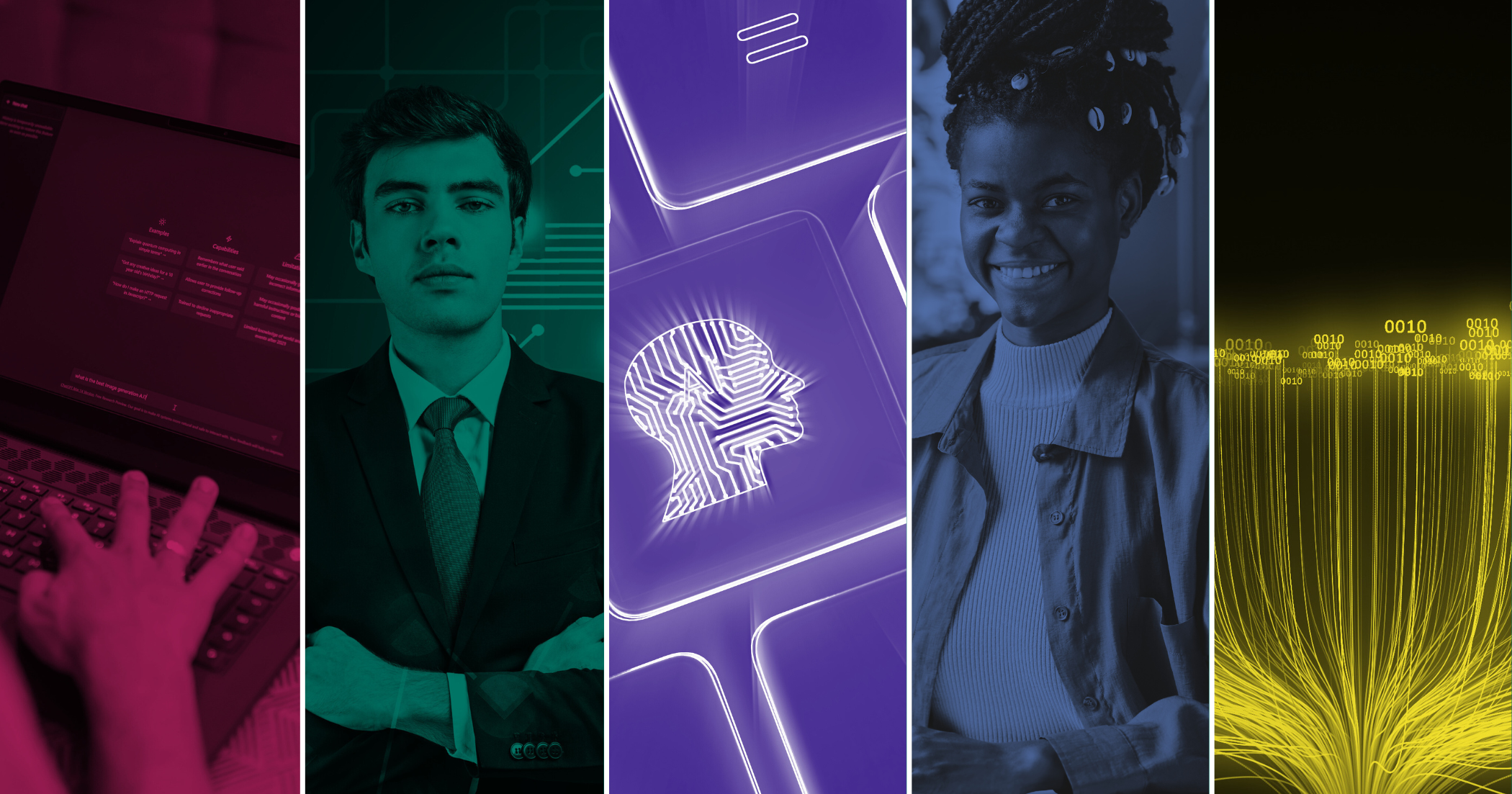.png)
Darby Joyce
Content Marketing Coordinator, Kogod School of Business
As artificial intelligence increasingly plays a role in business operations, business schools are taking notice. As universities work to incorporate AI literacy into their curriculum, you might wonder how understanding AI can support you in your career. Regardless of the program you pursue and the direction you take in your business career, knowing how to harness AI in your work both sets your resume apart and enables you to tackle the challenges of your field in new and effective ways.
How AI Supports an Accounting Education
Whether auditing, investigating fraud, or advising, accounting professionals work with a ton of information. Already, artificial intelligence tools are being utilized to support data entry and analysis in accounting, and accounting students put themselves at an advantage by understanding how those tools can support their careers. AI can automate repetitive data input tasks, analyze data sets for patterns, and flag discrepancies or issues in financial records. A strong understanding of where AI can support their work enables today’s accounting students to spend less time on entering and parsing data and more time analyzing, advising, and working directly with clients.
Casey Evans, professor of accounting and Associate Dean for Undergraduate Programs and Student Services at the Kogod School of Business, says: "With access to vast amounts of information at their fingertips, students gain a deeper understanding of fundamental accounting concepts, explore complex financial scenarios using big data, and increase efficiency by streamlining their research, which ultimately arms them with the skills needed to provide high-level support to their future clients."
Information Technology, Analytics, and AI
It’s impossible to talk about the role of information technology in business without mentioning the adoption of AI tools. As more businesses adopt AI to support operations across the board, a comprehensive understanding of business technology hinges on staying up to date with developments in the AI space. With a firm grasp on AI, machine learning, and modeling, information technology professionals gain an edge in everything from cybersecurity to data analytics. IT professionals can utilize AI to automate systems, support customer experiences with tools such as chatbots, and deepen their ability to adapt in a rapidly evolving industry.
Shawn Janzen, professor of information technology and analytics at Kogod, says: “AI-integrated coursework better strengthens business analytics programs by enabling students to grasp key concepts more quickly, which frees up time for advanced technical topics, richer discussions, and ultimately results in higher-quality applied projects. This AI knowledge also better prepares business students to excel as data storytellers and information professionals, empowering them to design complex models and deliver more insightful, data-informed guidance for actionable decisions.”
Harnessing AI in Finance
Current AI developments encompass a diverse range of tools to support financial professionals in their daily work. AI tools can support tasks such as investment analysis, risk modeling, and fraud detection, further enabling financial professionals to make informed decisions and advise clients as financial planners. Beyond the use of specific tools, however, AI literacy also supports data interpretation skills, as finance students can more easily parse large datasets and analyze findings to better understand the decisions they make. A career in finance requires strategic, informed decision-making skills and a strong grasp of how AI can support that, allowing finance professionals to perform their work both quickly and accurately.
AI is revolutionizing finance by providing faster and more accurate platforms for the analysis of larger and higher quality data sets. This enhanced analytical capability in turn allows for better risk assessment and independent-minded decision making in pursuit of higher risk-adjusted returns on capital."

Tim Timura
Professor of Finance, Kogod School of Business
AI’s Role in the Future of Marketing
Marketing as a field has evolved significantly, becoming more personalized through algorithms designed to evaluate and predict consumer behavior. Existing AI tools continue to build upon that foundation through predictive analytics and recommendation systems, enabling marketing professionals to design meaningfully targeted campaigns, build more effective content strategies, and anticipate market trends. Additionally, tools such as AI-powered chatbots can allow marketing teams to interface with customers and leads around the clock, thereby improving the customer experience by providing them with additional tools to get their questions answered.
Kogod School of Business Marketing professor Kelli Frias says: “I believe AI can be used responsibly in the classroom to support trial-and-error learning, idea refinement, technical skill development, and the enhancement of digital literacy. It can also play a meaningful role in automating routine processes, potentially lowering startup costs for both students and faculty. Although we are still in the early stages and the capabilities of generative AI in the classroom continue to evolve rapidly, I believe it's essential that we engage with it now and begin thinking of it as a tool that will be integral to our future.”
How AI Can Promote Sustainability Education
When it comes to sustainable business, AI can be a force for good by supporting professionals in both gathering and interpreting data. Students with a strong understanding of AI can better model environmental impacts, forecast climate trends, and analyze existing data to support their work in tackling environmental challenges. By utilizing the modeling capabilities of AI, students can simulate various issues and scenarios they may face in their careers and better understand the data involved in developing meaningful, scalable solutions.
Garima Sharma, professor of management at Kogod, says: "AI can transform sustainability education in a few ways. Students can leverage it as a data analysis tool, such as for real-time carbon tracking. Educators can use it as a teaching tool to create dynamic scenario modeling and simulations of sustainability challenges. And it can serve as a collaborative platform that connects students within and across classrooms to tackle complex environmental problems together."
No matter where you’re hoping to go with your business degree, a strong understanding of AI’s role in business can both support your work and set you apart from potential employers. Learn more about how the Kogod School of Business has integrated AI into its entire curriculum and why that matters.
